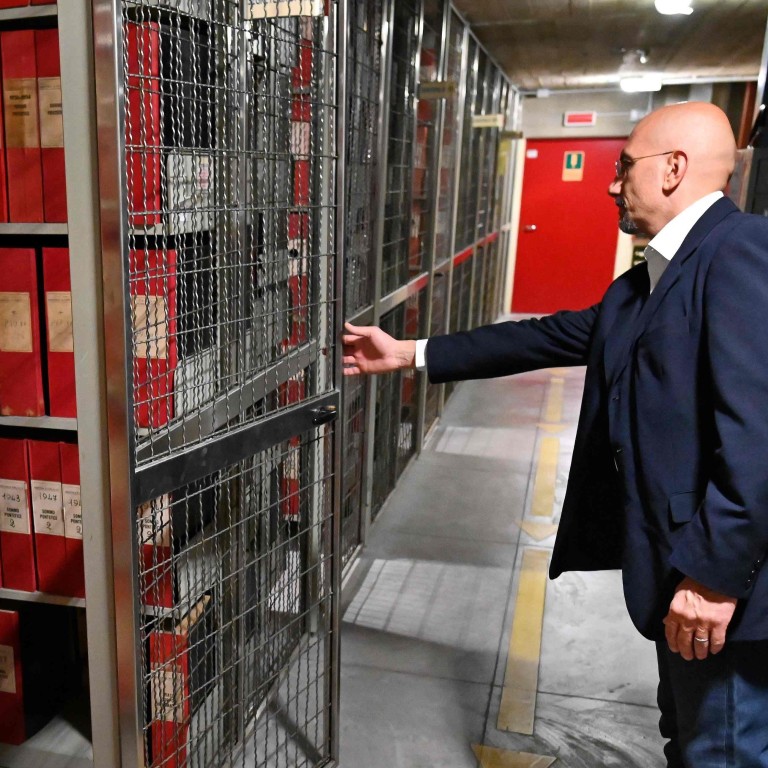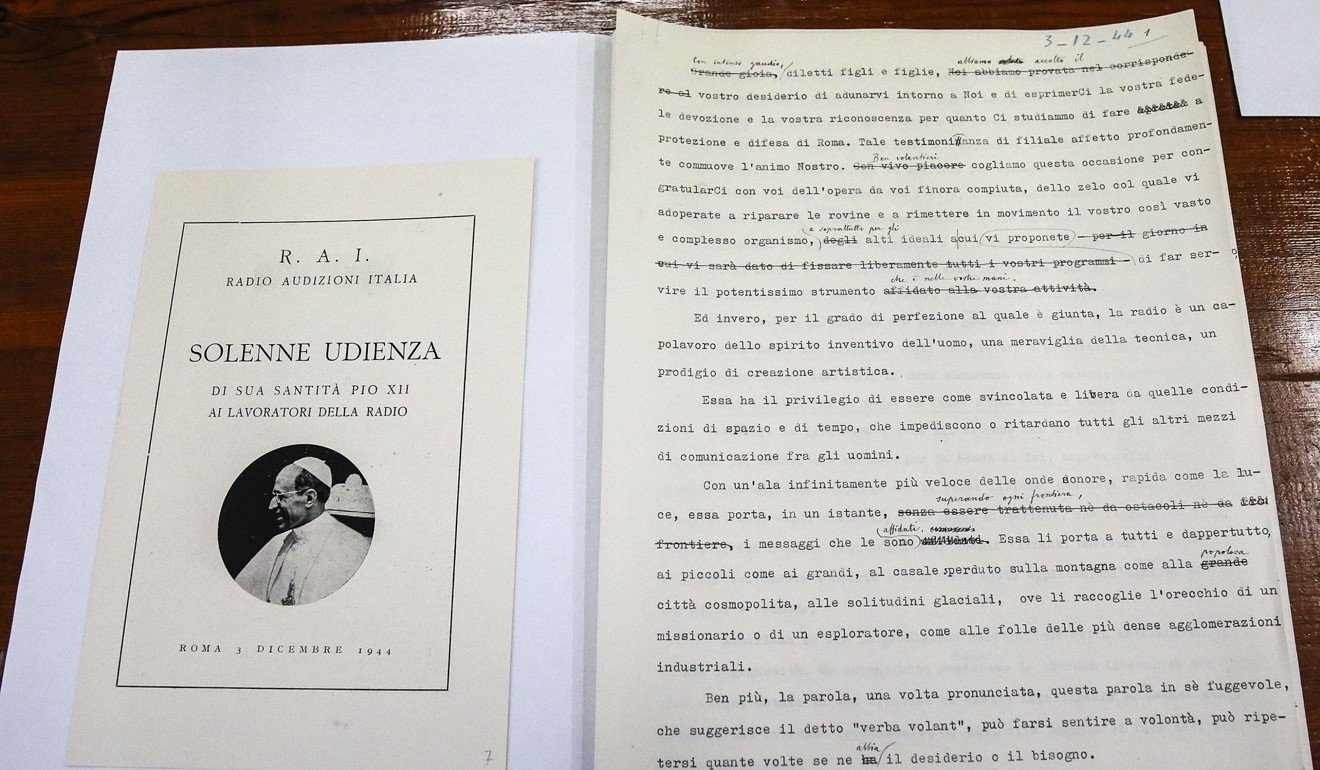
Vatican opens archives to historians seeking clues to late Pope’s silence on Holocaust
- Scholars finally gain access to documents associated with World War II-era Pope Pius XII, who has been accused of failing to speak out against Hitler
- Pontiff’s defenders say he worked behind the scenes to save Jews prosecuted by Nazis, including opening doors of church premises to shelter them
The Vatican on Monday opened the archives of World War II-era Pope Pius XII, an event keenly awaited by historians looking for new insights into the Catholic Church's response to the Holocaust.
“We hope that the sources will give us answers to the central questions” surrounding Pius XII's actions, said Professor Hubert Wolf, a German church historian from the University of Muenster, before entering the archives.
Pius XII, whose papacy lasted from 1939 to 1958, is a highly controversial figure, as has been accused of showing indifference to the massacre of the Jews and of failing to speak out against Nazi dictator Adolf Hitler.
But his defenders say he should be credited for working behind the scenes to save those persecuted by the Nazis, including opening the doors of monasteries, convents and other church premises to shelter Jews.

“It is a question of world history: 6 million Jews died. Did the Pope stay silent? Or did he want to do more?” Wolf added later.
“Why didn't [the church] separate itself much more clearly from National Socialism and for example, forbid Catholic soldiers from taking an oath of loyalty to Hitler?” he asked.
The Vatican archives are accessible only to academics.
“There are only 70 seats in the archive. Thirty of them are reserved for [people working on] Pius XII,” Wolf reported. “Each of us can order three boxes within half an hour. And in the afternoon we can order three more.”
The professor said he and his team landed a “real hit” during their first search session: a photograph of Jews murdered in a concentration camp sent to the Vatican's central bureaucracy from the Vatican's embassy in Switzerland.
Holocaust survivors mark 75 years since liberation of Auschwitz
“This mean that they had photographic evidence of what was happening,” Wolf noted.
Born Eugenio Pacelli in Rome in 1876, Pius XII also served as Vatican ambassador to Germany from 1920 to 1930, and was cardinal secretary of state, the second highest position within the Vatican, from 1930 to 1939.
The material concerning his papacy could also offer key evidence on the Vatican's role in the Cold War, in the European integration process, on its efforts to contain communist influence in Italy, and on its relations with the Soviet Union and the state of Israel.
Archbishop Paul Gallagher, who acts as the Vatican's foreign minister, told Vatican News that a total of “about 2 million documents” have been made available.

He insisted that Pope Pius XII was “a great champion of humanity, a man deeply concerned about the fate of humankind during those terrible years, somebody who was very sensitive and concerned about those who were being persecuted, somebody who was also the object of the hatred of Nazis and fascism”.
Reviewing the material from his papacy is expected to take years.
The findings are expected to influence an ongoing process to elevate Pius XII to sainthood. Jewish groups and the state of Israel have urged the Vatican to hold off until the historical truth is established.

